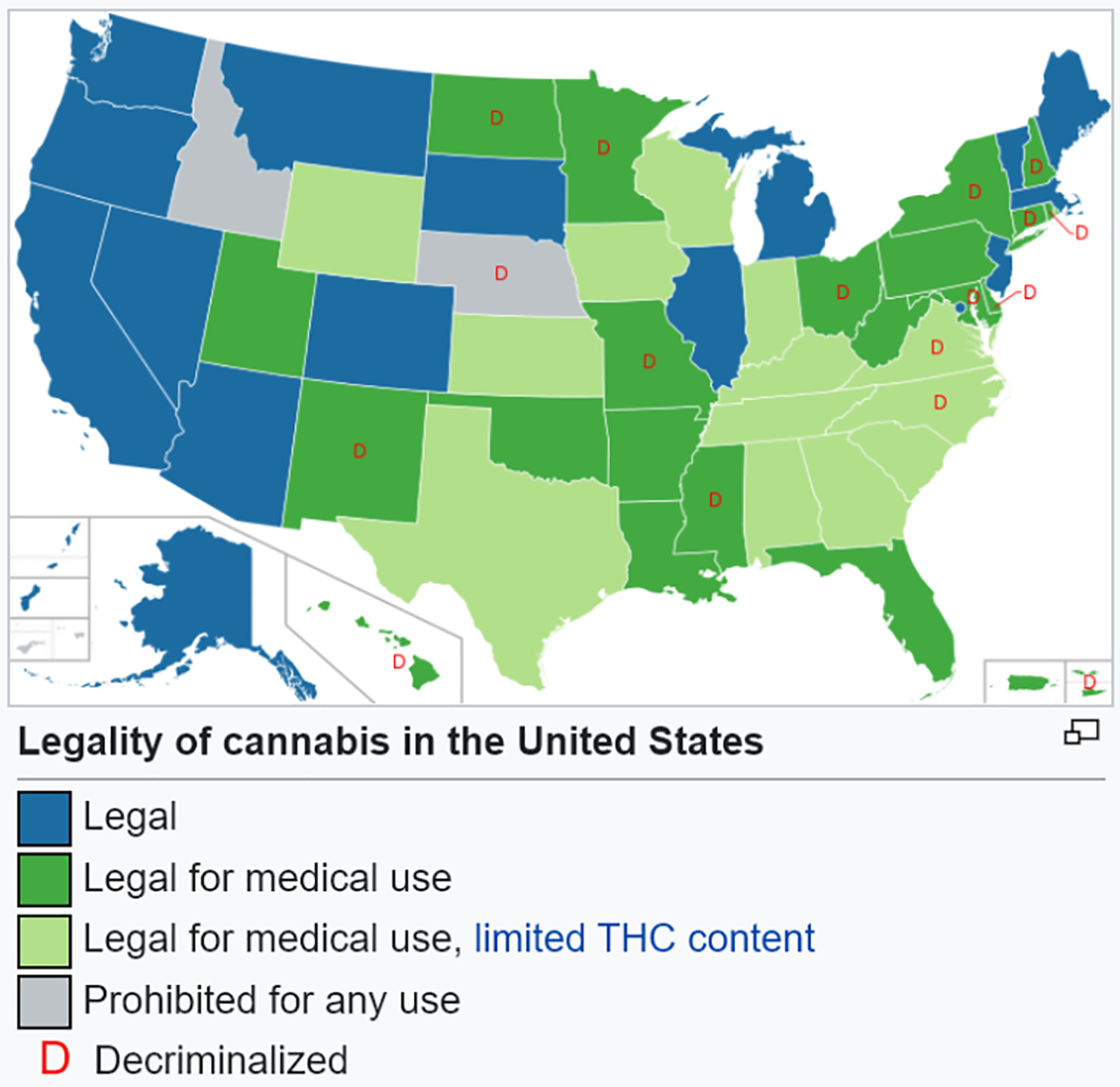Pursuant to N.J.S.A. 24:6I-52a(2)(a), the New Jersey Cannabis Regulatory Commission (“NJ-CRC”) is charged with prescribing standards for a Workplace Impairment Recognition Expert (“WIRE”) certification, to be issued to full- or part-time employees, or others contracted to perform services on behalf of an employer, based on education and training in detecting and identifying an employee’s usage of, or impairment from, a cannabis item or other intoxicating substance, and for assisting in the investigation of workplace accidents.
Cannabis is a drug that can remain in the bodily fluids of users for a long period of time and although tests are improving in accuracy there is no perfect test for detecting present cannabis impairment. Therefore, best practice has been for employers to establish evidence-based protocols for documenting observed behavior and physical signs of impairment to develop reasonable suspicion, and then to utilize a drug test to verify whether or not an individual has used an impairing substance in recent history.
Although N.J.S.A. 24:6I-52 provides that Workplace Impairment Recognition Experts can be certified and assist in the documentation of the physical and behavioral signs of intoxication, the statute does not impede the ability of employers to continue to utilize established protocols for developing reasonable suspicion of impairment and using that documentation, paired with other evidence, like a drug test, to make the determination that an individual violated a drug free workplace policy. In some industries, these protocols are federally mandated.
ALL EMPLOYERS, whether operating in the cannabis industry or otherwise, shall be guided accordingly:
Pursuant to N.J.S.A. 24:6I-52a(1), and in accordance with all state and federal laws, an employee shall not be subject to any adverse action by an employer solely due to the presence of cannabinoid metabolites in the employee’s bodily fluid as a result of engaging in conduct permitted under N.J.S.A. 24:6I-31 et al. However:
Employers have the right to maintain a drug free workplace consistent with the requirements of N.J.S.A. 24:6I-52; and
Employers may require an employee to undergo a drug test upon reasonable suspicion of an employee’s usage of cannabis or cannabis products while engaged in the performance of the employee’s work responsibilities, or upon finding any observable signs of impairment related to usage of cannabis or cannabis products, or as part of a random drug test program, or following a work-related accident subject to investigation by the employer.
A scientifically reliable objective testing method that indicates the presence of cannabinoid metabolites in the employee’s bodily fluid alone is insufficient to support an adverse employment action. However, such a test combined with evidence-based documentation of physical signs or other evidence of impairment during an employee’s prescribed work hours may be sufficient to support an adverse employment action.
In order to demonstrate physical signs or other evidence of impairment sufficient to support an adverse employment action against an employee for suspected cannabis use or impairment during an employee’s prescribed work hours employers may:
Designate an interim staff member to assist with making determinations of suspected cannabis use during an employee’s prescribed work hours.
An employer may use a cognitive impairment test, a scientifically valid, objective, consistently repeatable, standardized automated test of an employee’s impairment, and/or an ocular scan, as physical signs or evidence to establish reasonable suspicion of cannabis use or impairment at work.
- Impairment and qualified to complete the Reasonable Suspicion Observation Report; and
- May be a third-party contractor.
Utilize a uniform “Reasonable Suspicion” Observation Report that documents the behavior, physical signs, and evidence that support the employer’s determination that an employee is reasonably suspected of being under the influence during an employee’s prescribed work hours.
The employer should establish a Standard Operating Procedure for completing such a report that includes:
- The employee’s manager or supervisor or an employee at the manager or supervisor level; and
- An interim staff member that has been designated to assist with determining whether an employee is reasonably suspected of being impaired during an employee’s prescribed work hours, or a second manager or supervisor.

Note on Federal Contracts: N.J.S.A. 24:6I-52b(1)(b) specifically provides that if it is determined that any of the provisions set forth in that section of the law result in a provable adverse impact on an employer subject to the requirements of a federal contract, then the employer may revise their employee prohibitions to be consistent with federal law, rules, and regulations. As such, employers may be required by federal contract or law to follow specific protocols related to determining reasonable suspicion and drug testing and are permitted under N.J.S.A. 24:6I-52 to continue to do so.

